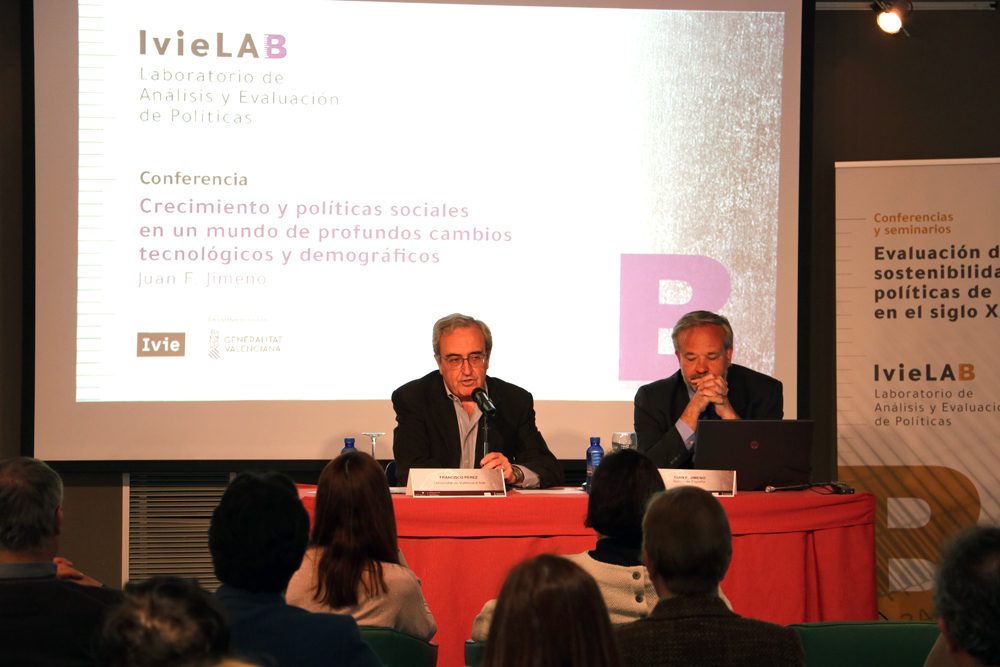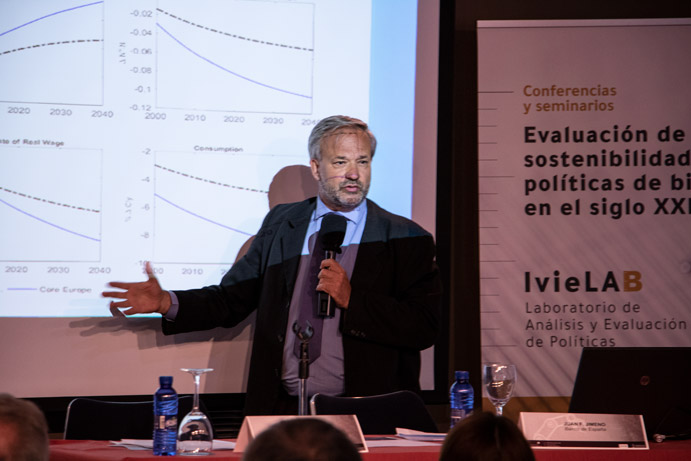News

Juan F. Jimeno: "The technological revolution may result in contributory pensions being replaced with a universal basic income"
Bank of Spain advisor, Juan F. Jimeno, examines how recent technological and demographic changes are affecting economic growth and social policies
Emerging technologies, based on digitization and the development of robotics and artificial intelligence, are rapidly changing the labor market worldwide, creating new jobs but at the same time destroying others. Other issues also seriously affecting the economy are the retirement of baby boomers (born between 1955 and 1975), the reduced birth rate and increased longevity.
The Bank of Spain advisor, Juan F. Jimeno discussed the need for changes in social protection policies to maintain their effectiveness in a talk entitled “Growth and social policies in a world marked by major technological and demographic changes”, part of the IvieLAB project developed by the Ivie in collaboration with the Valencian Regional Government. According to Jimeno: “In today’s scenario in which automation is making significant advances but innovation technology is not evolving at the same pace, social policies must focus more on the guarantee of a universal basic income and less on traditional contributory welfare benefits”.
For Juan F. Jimeno, the concurrence and interaction of demographic and technological changes poses several questions for which economic research is providing new results. There is reason to believe that technological change is more disruptive than in the past and will cause major changes in the workforce. In addition, “demographic changes in the future will likely decrease productivity growth and technological innovation, since digitization and automation may not compensate for the impact on production and productivity of a declining and aging working-age population. Income growth per capita could decrease by up to two percentage points”.
This new demographic and technological context would force changes in current social policies, explains Jimeno, posing three different scenarios: social policies continue without change receiving in the future less funding through intergenerational transfers; social policies undergo drastic change that would involve some kind of universal basic income; or, probably the most likely scenario, unexpected technological innovation would require new ideas and new ways of designing social policies.









